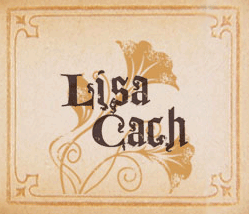Write the book. Yeah, this sounds obvious, but if you’re a new writer, and unpublished, it’s easy to distract yourself with joining groups, looking up agents, researching publishers, talking to friends about the book, etc.
Instead, write the book. You’re going to learn a lot about writing while you do it.
Actually, you’ll learn a lot about writing just from composing the first page of a novel: most of all, you’ll learn how hard it really is, and how much thinking has to happen before those first words are put down.
Lots of people have great ideas for books, but never translate the idea from their head to paper. Don’t be one of them. Write the book.
Don’t compare your writing, or your successes and failures, to others. It will do you no good. Really, you don’t want to feel good about yourself by putting someone else down. And comparing yourself to those who are better than you will just leave you feeling inferior and unmotivated.
If you can’t follow the above advice, then remove yourself from contacts and situations where you compare yourself to others (critique groups, writers’ groups, that ‘friend’ who only keeps in touch with you when she has good news about her career).
On critique groups: no, you don’t have to join one. What’s been helpful for me is to have one trusted friend read my work. Join a group if it helps you. Don’t join, if it doesn’t.
Getting the first draft written is more important than getting it written well. That’s what rewrites are for.
Yes, there will be rewrites. And more rewrites. And more. That’s how the book becomes good. I think of each rewrite as a new layer of paint on a painting, giving it depth, color, and definition.
When doing rewrites based on the comments/advice of others, maintain a sense of what you want the story to be. If you listen to everyone, and try to please people with contradictory opinions, you’ll end up with a bland book.
I think it’s possible to over-edit, or over-rewrite a book. Sometimes there’s a sense of life and energy in the original that can get polished out.
I know I’m on the right track with a book when I have several moments of wondering if I’m writing something that’s completely genius and hysterical, or utter rubbish. “This is crazy!” is a thought that might lead to a great book. Or a lousy one. Who knows… But at least it won’t be boring.
What seems like a shout to you as the writer will seem like a subtle whisper to the reader. You already have the story alive in your head; the reader doesn’t. You have to be a lot louder than you think to fully communicate your vision.
Make your main character anything except a writer.
Okay, I confess, the above is just a pet peeve of mine. Make your main character anything you wish.
No, you don’t have to write every day. I don’t. I’ve tried, and I can’t do it. It just doesn’t work for me, but writing in bursts with lots of down time in between does work for me. We’re all different, and all have different styles of getting things done. Find what works for you.
It doesn’t mean you’re not meant to be a writer if you avoid writing as if it were dental work. My advisor in college told me he didn’t see me ever becoming a writer because I didn’t have the burning need to write every day. Hah! A dozen books later, I bite my thumb at you, Mr. Advisor! I bite my thumb!
I envy writers who feel as if they’re ‘channeling’ a book and it flows from their fingertips as if it has a life of its own. I’ve never (yet) had that experience. For me, each page is slow and deliberate.
It doesn’t mean you’re not meant to be a writer if every single word feels like torture.
When I get ‘stuck’ in my writing, and seem unable to drag the story forward, it usually means that I have just written a scene where I diffused the tension between characters. I don’t like tension in real life, and this makes me want to release the tension in my fiction. Big mistake! Tension is what moves the story. It is what pulls the reader towards the resolution at the end of the book.
And one last time:
Write the book!
*
If this wasn’t enough advice, then you can find excellent guidance in Writing Your Way, by Don Fry, available March 2012 from Writer’s Digest Books. He also has a blog.


